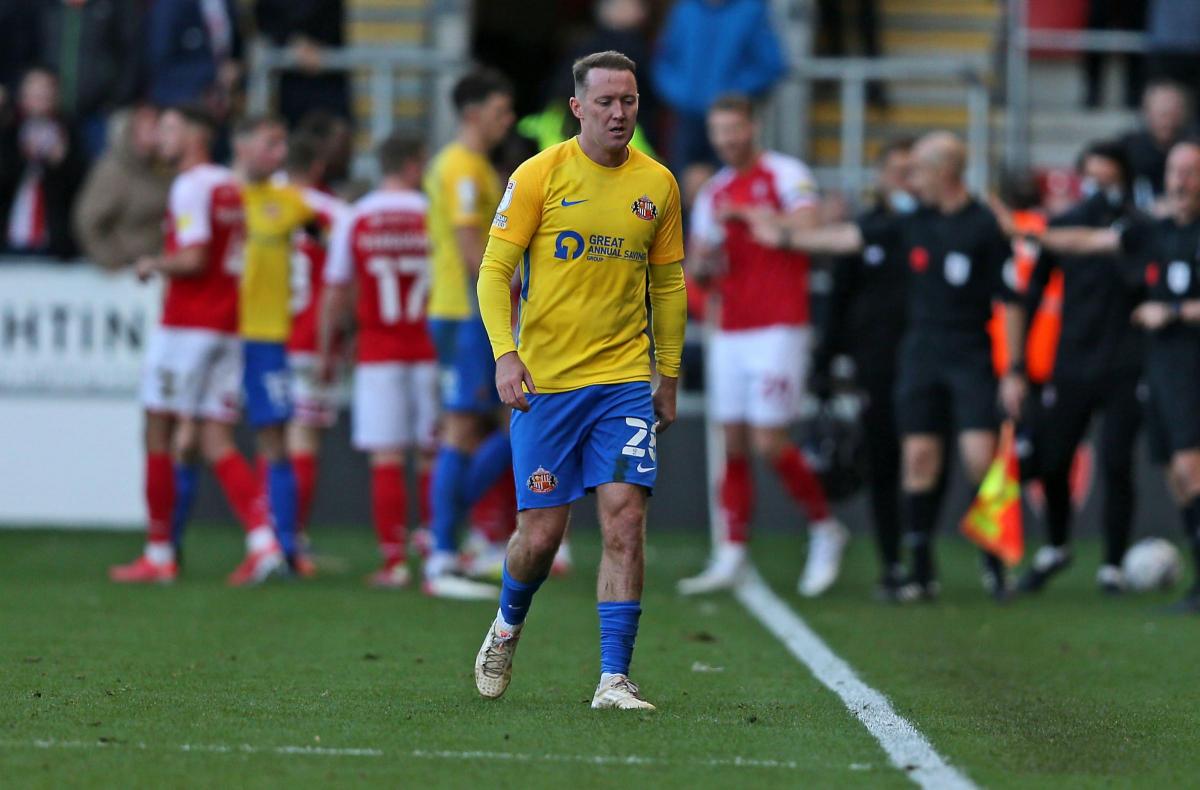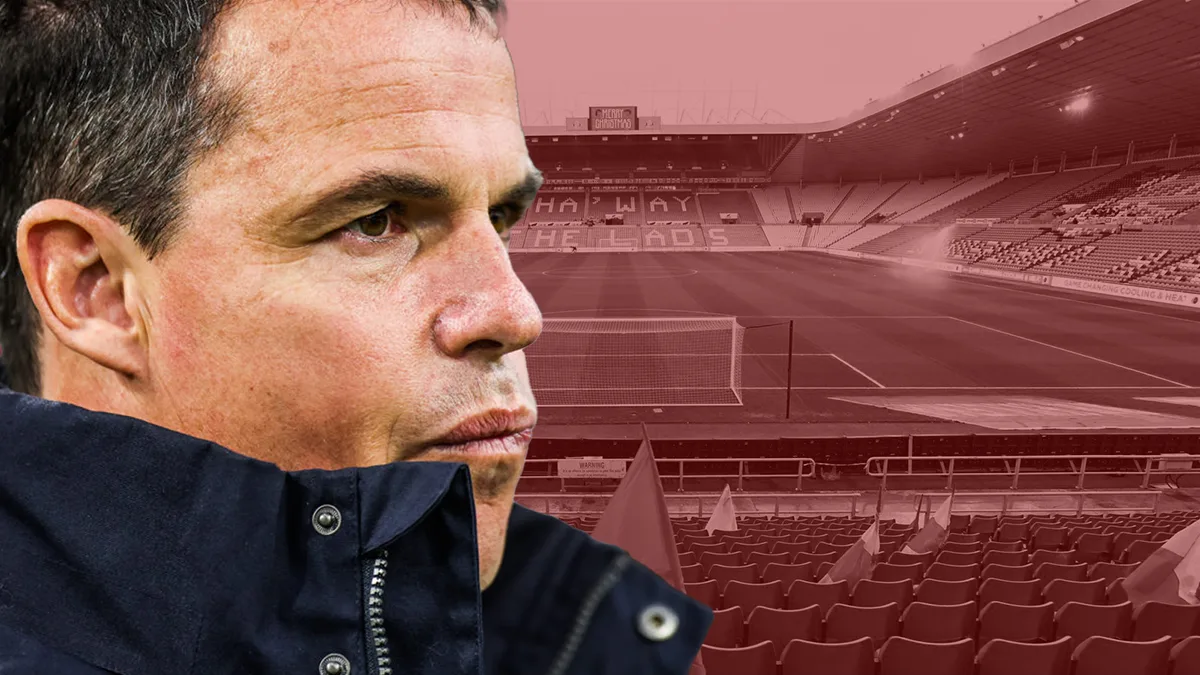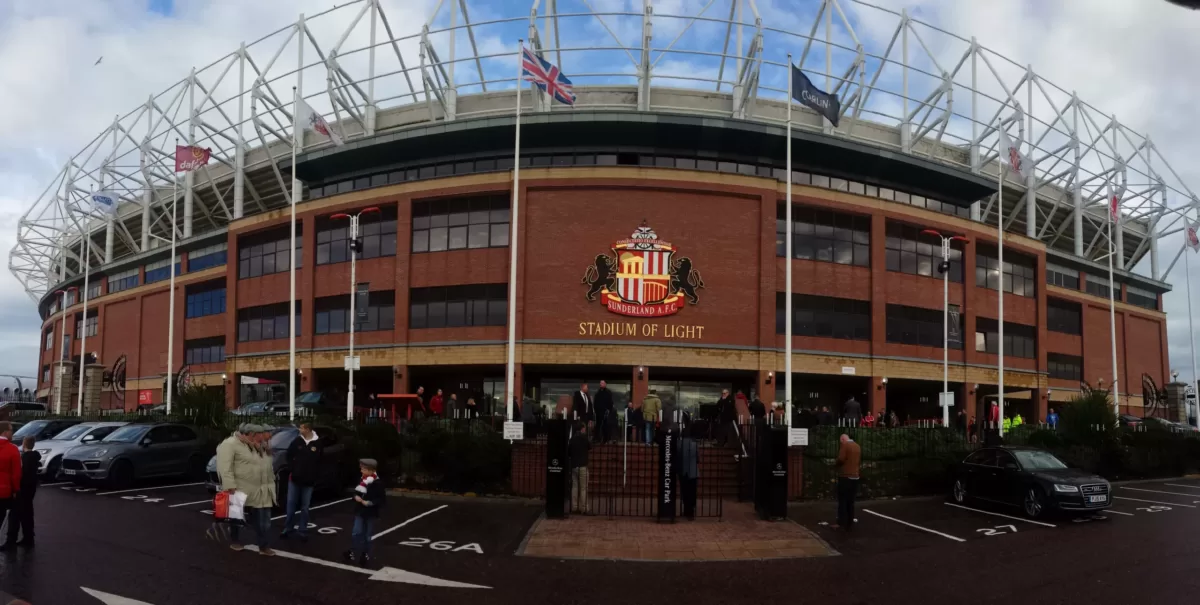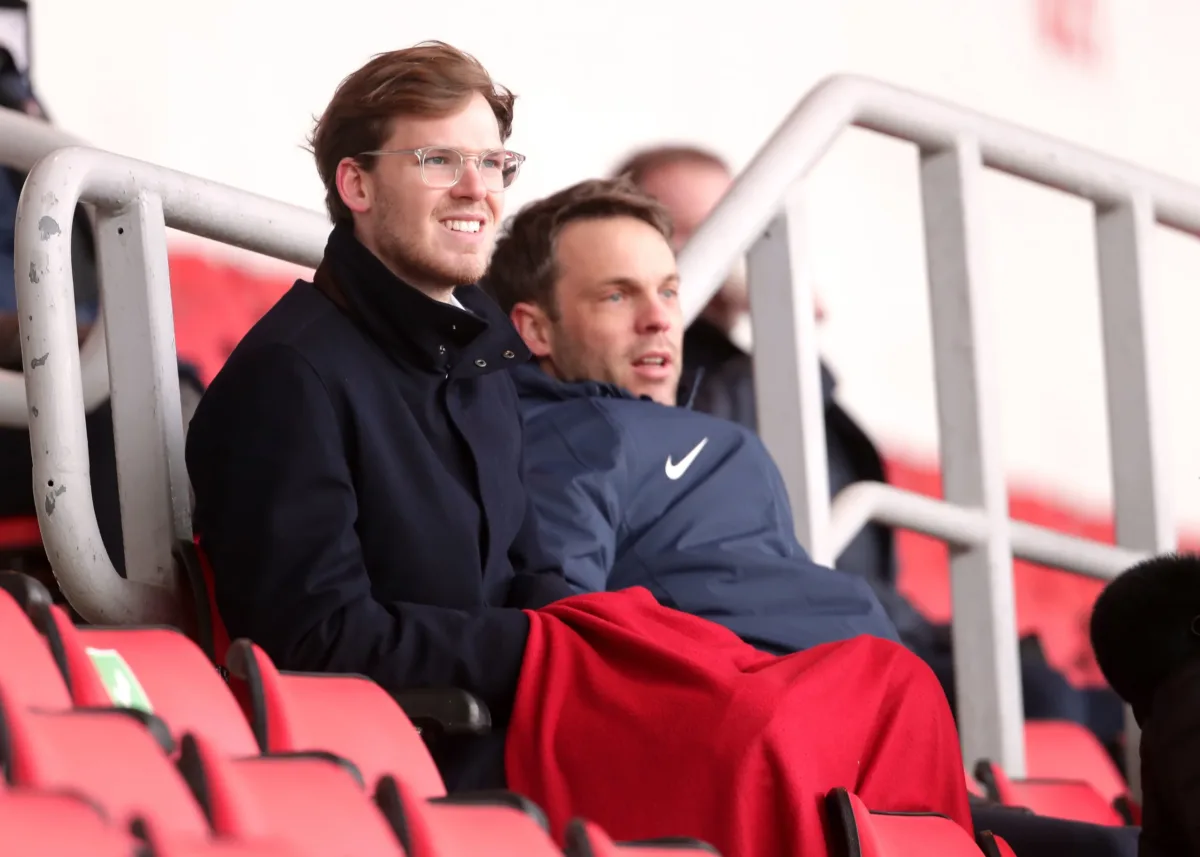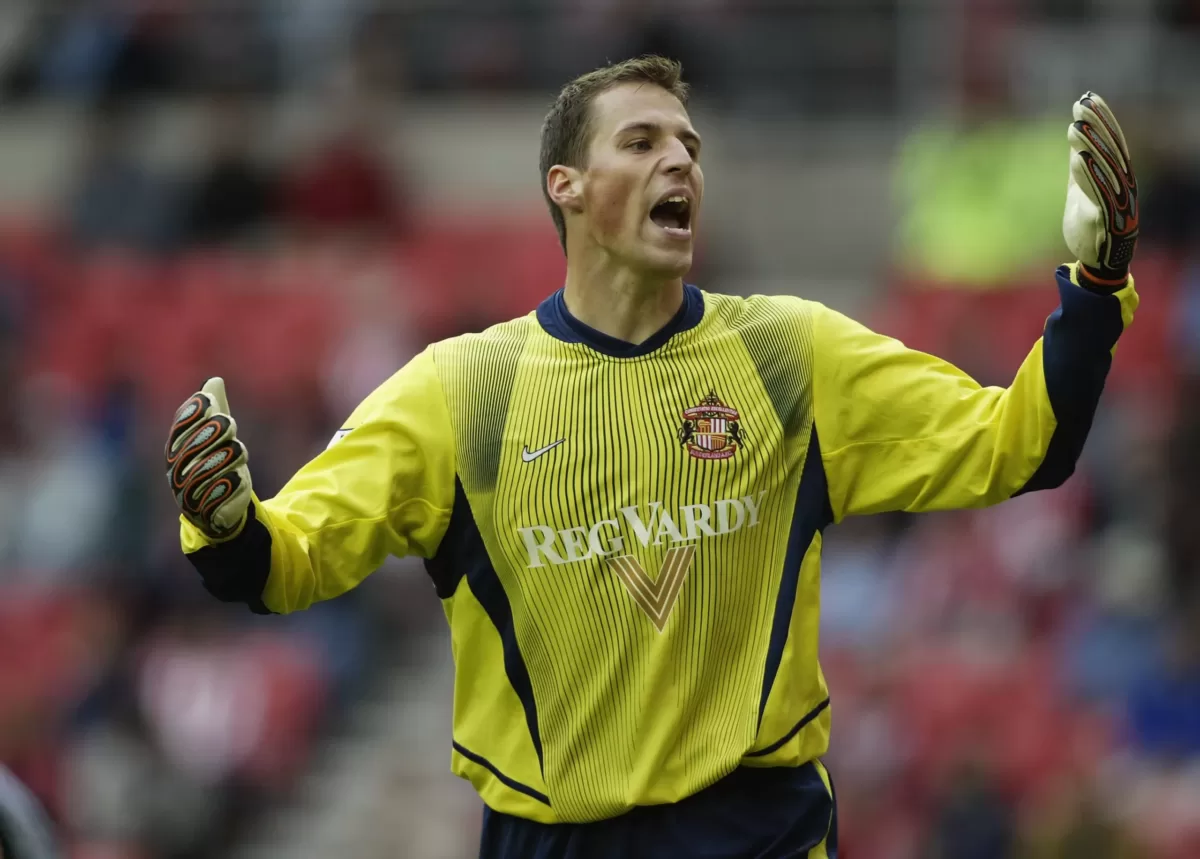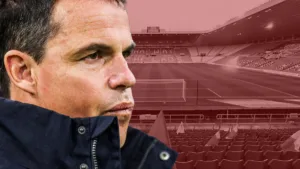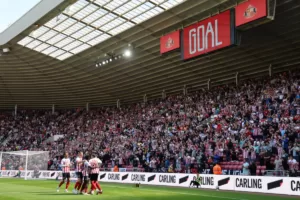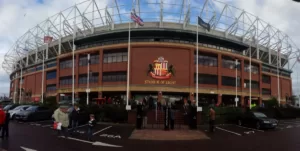In January 1998, when All Saints ruled the charts and Manchester United and Arsenal duked it out atop the Premier League, Sunderland travelled to Rotherham United and won 5-1. Almost 24 years and a half-mile stadium move later, yesterday, The Millers got their revenge.
Sunderland were not so much beaten at the New York Stadium as they were trounced. Even when Ross Stewart pulled us level midway through the first half, there was little denying we were second-best all over the pitch. Aiden McGeady’s senseless sending off soon after the break might offer some the chance to cite mitigating circumstances. Such attempts will rightly fall on deaf ears.
Even a cursory glance at basic performance data showed Rotherham to be probably the best team in the division, especially going forward. Lee Johnson, in fairness, had acknowledged as much throughout the build-up to Saturday, but in a way that makes his side’s complete inability to combat it even more worrying.
The decision to start both Leon Dajaku and McGeady against a side with strong attacking credentials from the full-back positions looked a risky one even before the game got under way, and so it proved. If Johnson was as clued up on his opponents as he claimed, then that choice was one of two things: bold or stupid. Take your pick.
The manager cannot legislate for everything, and there were poor performances across the board, Stewart the only exception. But Johnson can be held to account for the fact that, up against the best attacking side in League One, Sunderland looked clueless. In the end, that Rotherham only scored five was a mercy to the visitors rather than flattering to the hosts.
It would be wrong to take yesterday’s loss as a sign that all is about to fall to ruin. We remain fifth in the table, able to vault into the automatic promotion spots if games in hand are won. A sense of optimism pervades the the club, buoyed by a more youthful playing squad and Tuesday’s successful passage into the last eight of the country’s second-most prestigious cup competition.
This Sunderland side presents a peculiar paradox. For much of this term they have looked far more like promotion contenders than iterations of the previous three seasons. But yesterday’s loss and the defeat at Portsmouth represent more thumping defeats than any of those suffered since relegation from the Championship in 2018.
Indeed, only once in the club’s history had we lost by more than three goals in the third tier, back in 1988 when Denis Smith’s table-toppers were given a surprise 4-0 hounding at Bristol Rovers to briefly knock them off their perch (one Ian Holloway was among the scorers for The Gas that day). Johnson’s side have notched two such defeats inside four weeks.
Some explanation for that is rooted in the manager’s approach. Johnson is comfortably the most attacking manager we have had in this division, preferring to get after teams early over prioritising clean sheets. In many respects it has been a refreshing change from the dour days of Phil Parkinson and the death throes of the Jack Ross era.
The attack-minded strategy has paid dividends often, and particularly against the worst this division has to offer. Cheltenham Town and Crewe Alexandra presented perhaps the worst opposition we’ve seen since landing in this footballing hinterland; both were resolutely seen off, delivered pastings that one suspects previous mangers wouldn’t have devised so readily.
But for all the positivity, there are some serious downsides now rearing their head. Yesterday was the third time Johnson’s Sunderland have registered expected goals conceded in excess of two in a game; neither Ross nor Parkinson did it more than twice. It is also the third time in a month that they have been outplayed on the road, the Portsmouth and Rotherham shellackings being split by a victory at Gillingham that was, in truth, fortuitous.
This is a team that can be got at, one whose first-choice defence boasts two players in their first season of senior football. That comes with advantages and drawbacks and, unfortunately, it is the latter that have been apparent in October. Helping a young side discover sturdier resolve will be essential to Johnson’s fortunes this year.
So too will be getting the best out of some of the more senior pros among his ranks. The caveats that accompanied the signings of Corry Evans and Alex Pritchard have proven sadly relevant. Evans has played just 404 league minutes, or 32% of time available. Pritchard looks patchy at best.
Elsewhere, the re-signing of McGeady has borne little fruit, while the genuflection offered to Luke O’Nien to retain his services may well have done more harm than good. O’Nien was torrid yesterday, hauled off at half-time, and it is hoped now that his own personal humbling helps him go back to basics instead of trying to be all things to all men. At the back, Bailey Wright endured a chastening showing from the bench, and is another older head whom Johnson will need to up his game.
Social media seems to get further away from reality with each passing day, and the #SAFC hashtag is no exception. In the past 24 hours there have been more remarks decrying those wishing for Johnson to be sacked than there have been calls for him to actually be sacked. There are sadly plenty willing to put up straw men for likes rather than basing their views on anything the critics are really saying.
Johnson should not be sacked now and there are mercifully few who believe otherwise. But it is an inescapable reality that Sunderland losing 5-1 in the third tier is unacceptable, and even more so when coming soon after another four-goal drubbing.
Ultimately Johnson will be judged by the standards all other managers have and will be at this level: he and his predecessors are and were only a couple of bad results away from trouble. How fair that is is open for debate but, if we are to strive to be the club we all want us to be, then it seems only right that standards aren’t allowed to slip.
Johnson was the deserved beneficiary of patience in the summer. It would have been wrong to claim a new era was afoot then bin the manager before he had any real opportunity to be a part of it.
He has largely repaid that patience too. Many, this writer included, pointed at a slow-burning transfer window and claimed that if Sunderland were behind the curve after 10 games, it would be Johnson in the firing line. That we were joint-top at that stage was more than worthy of praise, particularly given the piecemeal manner in which his squad came together.
After yesterday’s game, the manager was keen to highlight the loss as “a line in the sand”. That’s refreshing to hear but needs to be backed up with action. Tuesday brings a trip to Sheffield Wednesday who, for all their historic grandeur and sizeable fan base, are a poor side we should be looking to beat.
While Johnson’s attacking style has been and remains welcome, of primary importance in 48 hours should be keeping the back door shut. That might seem hypocritical having lamented the negativity of Phil Parkinson, but there is a middle way and sometimes it becomes a necessity. With a young goalkeeper and back line, a clean sheet now would bring benefits beyond stopping the rot of league defeats.
It is a quirk of fate that a season which has been laden with optimism is now associated with perhaps the worst result in our football club’s history. No one will accept results and performances like yesterday and, thankfully, very few seem willing to. The manager himself least of all.
Whether or not our trip to Rotherham United matters in the grand scheme of things will become apparent over the coming months. It could well prove a necessary wake-up call. It needs to. For all the good of this season to date, results like yesterday rarely blot the copybook of promoted teams. Lee Johnson’s task now is to ensure what he has termed our “capitulations” are left firmly in October.
Chris Weatherspoon

